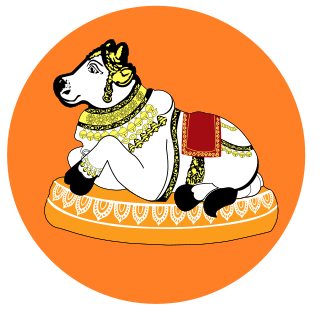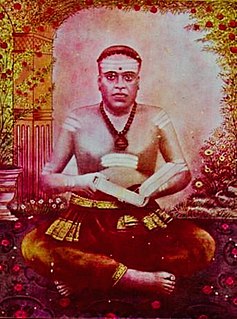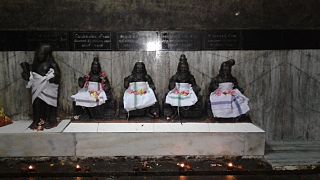This article has multiple issues. Please help improve it or discuss these issues on the talk page . (Learn how and when to remove these template messages) (Learn how and when to remove this template message)
|
The South India Saiva Siddhanta Publishing Society Tinnevely Ltd. was founded in the year 1920 and started its function from Tirunelveli. Thiru. V. Thiruvarangam Pillai and Nellai Tamil saivites formed this company to publish books on Tamil and Saiva Samayam. Thiru. V. Thiruvarangam Pillai had good contact with Maraimalai Adigal who was also a great saivite lecturer. Maraimalai Adigal was an English professor at Madras Christian College, Tambaram. The Madras operation was taken care by Thiru V.Subbiah Pillai.
Following the death of Thiru V. Thiruvarangam Pillai (1944), Thiru. V. Subbiah Pillai took over the administration as Managing Director of the company until 1983. Thiru V. Thiruvarangam Pillai published so many rare Tamil books and have contributed much to the Tamil book world. He took immense interest and brought into the book form by publishing all the lectures disclosed by Maraimalai Adigal, at Colombo, Sri Lanka. The South India Saiva Siddhanta Publishing Society Tinnevely Ltd., formed a library called Maraimalai adigal Library at Linghi Street, Madras George Town area. Thiru V. Subbiah Pillai took much interest in forming this library. Thiru. R. Muthukumaraswamy was the Librarian in-charge. Thiru V. Kalyana Sundaram who was the General Manager of The South India Saiva Siddhanta Publishing Society Tinnevely Ltd., has contributed much to the Tamil book industry. He who coined the name Pavazha Vizha in Tamil for 75th Birthday celebration.
In 1969, Thiru V. Subbiah Pillai for Literature & Education Service was honoured by the Indian Government with Padma Shri. He was keen in translating in pure Tamil, the same was named as Thamarai Chelvar and he was called as Thamarai Chelvar V. Subbiah Pillai. After the demise of Padma Shri V.Subbiah Pillai R.Muthukumaraswamy took charge as MD of Kazhagam. He was the conference secretary of the 5th International Tamil Conference which was held at Madurai Kamaraj University, Madurai under the able leadership of then Chief Minister Dr.MGR and he was the souvenir committee member of the 2nd International Tamil Conference which was held at Madras which was conducted by our then Chief Minister Thiru. C.N. Annadurai. Thiru R.Muthukumaraswamy was the President of BAPASI, The Booksellers' & Publishers' Association of South India Chennai Book Fair in the year 2004 – 2005[1]
The company has published books on Tamil Sangam Literature, Tirukkural Thelivurai by Mu.Va., Kazhaga Tamil Dictionary, Kazhaga Tamil English Dictionary, Kazhaga English Tamil Dictionary, Thirumanthiram with Ramanatha Pulavar Prose, Thiruvasagam with Ramanatha Pulavar Prose, etc. Works by Devaneya Pavanar and M. S. Purnalingam Pillai have also been published through this publishing house. The most famous title of this publishing house is Thirukkural Thelivurai written by a great Tamil Scholar Mu. Varadarajan. The Kazhagam is now entering 100th year of celebration.
Recognition In 1969, Sri V. Subbiah Pillai for Literature & Education Service was honoured by the Indian Government with Padma Shri Awards (1960–1969).
The South India Saiva Siddhantha Works Publishing Society Tinnevely Ltd. (also known as Kazhagam) is a Tamil book publishing company.








